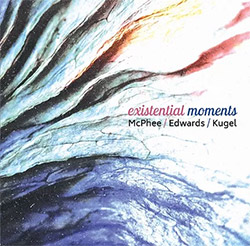
The 3rd album from the touring trio of Joe McPhee on trumpet & tenor sax, John Edwards on double bass and Klaus Kugel on drums, following their previous NotTwo releases A Night In Alchemia and Journey To Parazzar, here captured live at FreeJazzSaar 2019, in Saarbrucken, Germany for a boisterously exciting set of three collective improvisations, including a tip of the hat to Charles Gayle.
In Stock
Quantity in Basket: None
Log In to use our Wish List
Shipping Weight: 4.00 units
EU & UK Customers:
Discogs.com can handle your VAT payments
So please order through Discogs
Sample The Album:
Joe McPhee-trumpet, tenor saxophone, voice
John Edwards-double bass
Klaus Kugel-drums
Click an artist name above to see in-stock items for that artist.
UPC: 5906395187812
Label: Not Two
Catalog ID: MW-2 1021-2
Squidco Product Code: 32219
Format: CD
Condition: New
Released: 2022
Country: Poland
Packaging: Cardboard Gatefold
Recorded live during live at FreeJazzSaar 2019, in Saarbrucken, Germany on April 6th, 2019, by Ralf Schnellbach.
[Review of Big Bad Brötzmann Quintet: Bambule! and Existential Moments]
"Could it be that part of creative music's future will continue to be strongly propelled by a few designated individuals long int their golden age? The supposition may prove true when considering the most recent sessions headed by American saxophonist/trumpeter Joe McPhee and German woodwind player Peter Brötzmann. At 83 (McPhee) and 81 (Brötzmann) years old respectively show no sign of losing the power and individuality that they first individually displayed on records almost 60 years ago. With either also open to familiar or novel configurations, those preferences are prominently displayed on the dazzling and adventurous improvisations here.
Both combos include British bassist John Edwards, whose associates include Evan Parker. However others of the one extended and two shorter Existential Moments also come from one of McPhee's regular cohorts: German drummer Klaus Kugel, who also works with Charles Gayle. Doubling the string bottom, Edwards shares bass duties on Bambule with Hamburg-based John Eckhardt, equally proficient in notated and improvised music. The unique ensemble, which performs one lengthy and one shorter improvisation is filled out by German drummer Christian Lillinger, in demand for many bands including his own; and pianist Oliver Schwerdt, whose organizational efforts in Leipzig have encompassed collaborations with Gunter "Baby" Sommer.
Beginning with the expected tsunami of hard and heavy textures stretched and augmented with overblowing, Brötzmann's visceral forays are efficiently matched by quirky accelerated keyboard runs, forceful dual double bass thwacks and thumps, rolls and ruffs from the drummer. The tenor saxophonist's emphasized reflux works its way across the scales with frenetic intensity, encompassing renal scoops and altissimo glissandi, confirming the narrative as spiccato and col legno string sawing and piano cross pulsing also contribute to its brute force. Yet there's a point where clarinet trills indicate a segue to a secondary melodic motif which contrasts with the initial exposition, a detour confirmed by Schwerdt's colorful dynamics, as the horizontal flow is cinched by tandem double bass crunches. That means the title track and the subsequent group regeneration have space for explorations that include strangled cries and progressive snorts from the reeds plus keyboard pounding, angled string sawing and cymbal whistles that balance speed and noise. Final sequences in each sequence slow down to suggest delicacy as well as dynamics.
There's a similar strategy at work on the other CD's three selection. But McPhee's ascending half-valve and sharped trills from trumpet add the additional colors which are created by more hands in the Big Band quintet. Edwards' sul tasto drones and walking thwacks define forward motion and balance, while Kugel's ruffs and claps effectively accompany as well as exhibit percussion advances. When McPhee introduces flattement and doits with his saxophone the exposition becomes more pressurized as its stretched further along with f string pops and col legno stops from Edwards. Boosting the sequence even more, McPhee adds vocal yells along with reed honks so that the exposition alternates between lento finger-cymbal taps and delicate string slaps or staccato drum ruffs and string pumps. Returning to trumpet, McPhee's thickened bursts gradually give way to a quieter, more lyrical sequence, that with cymbal swishes and light string strokes references both the tune's head and the reed/brass transformation which makes it unique. While the set reaches a crescendo-climax with the concluding "Images in mind" the trio move into Free Jazz mode. Complete with Edwards' thick plunks and scratches, Kugel's ruffs and rebounds and McPhee bugling upsurge, the penultimate "Light beam (for Charles)" defines how McPhee has managed to be creative for so long. Encouraging an underlying swing groove from bass string stops, the horn player leads the band and audience through a few chants of "Charles Gayle". Saluting another free form player who shares his age, McPhee further confirms his appreciation of other sound explorers as well as the linkage of Jazz and improvised music yesterday and today.
With the two saxophonists continuing to create such strong set as octogenarians, is it possible creative music's future may in the coming years partially lie with the talents of centenarians?"-Ken Waxman, Jazz Word
Get additional information at Jazzword
Artist Biographies
• Show Bio for Joe McPhee "Joe McPhee, born November 3,1939 in Miami, Florida, USA, is a multi-instrumentalist, composer, improviser, conceptualist and theoretician. He began playing the trumpet at age eight, taught by his father, himself a trumpet player. He continued on that instrument through his formative school years and later in a U.S. Army band stationed in Germany, at which time he was introduced to performing traditional jazz. Clifford Thornton's Freedom and Unity, released in 1969 on the Third World label, is the first recording on which he appears as a side man. In 1968, inspired by the music of Albert Ayler, he took up the saxophone and began an active involvement in both acoustic and electronic music. His first recordings as leader appeared on the CJ Records label, founded in 1969 by painter Craig Johnson. These include Underground Railroad by the Joe McPhee Quartet (1969), Nation Time (1970), Trinity (1971) and Pieces of Light (1974). In 1975, Swiss entrepreneur Werner X. Uehlinger release Black Magic Man by McPhee, on what was to become Hat Hut Records. In 1981, he met composer, accordionist, performer, and educator Pauline Oliveros, whose theories of "deep listening" strengthened his interests in extended instrumental and electronic techniques. he also discovered Edward de Bono's book Lateral Thinking: A Textbook of Creativity, which presents concepts for solving problems by "disrupting an apparent sequence and arriving at the solution from another angle." de Bono's theories inspired McPhee to apply this "sideways thinking" to his own work in creative improvisation, resulting in the concept of "Po Music." McPhee describes "Po Music" as a "process of provocation" (Po is a language indicator to show that provocation is being used) to "move from one fixed set of ideas in an attempt to discover new ones." He concludes, "It is a Positive, Possible, Poetic Hypothesis." The results of this application of Po principles to creative improvisation can be heard on several Hat Art recordings, including Topology, Linear B, and Oleo & a Future Retrospective. In 1997, McPhee discovered two like-minded improvisers in bassist Dominic Duval and drummer Jay Rosen. The trio premiered at the Vision Jazz Festival in 1998 but the concert went unnoticed by the press. McPhee, Duval, and Rosen therefore decided that an apt title for the group would be Trio X. In 2004 he created Survival Unit III with Fred Lonberg-Holm and Michael Zerang to expand his musical horizons and with a career spanning nearly 50 years and over 100 recordings, he continues to tour internationally, forge new connections while reaching for music's outer limits." ^ Hide Bio for Joe McPhee • Show Bio for John Edwards "After taking up the bass, around 1987, John Edwards co-formed The Pointy Birds who went on to win awards for their music for The Cholmondeleys and Featherstonehaughs dance troupes. The group appeared at festivals in Glasgow, Edinburgh, Moers, Leverkusen, Copenhagen. Around 1990, Edwards played his first gigs with London improvisers such as Roger Turner, Lol Coxhill, Maggie Nicols, Phil Minton. Between 1990 and 1995 Edwards was a member of three touring groups simultaneously: B-Shops For The Poor, The Honkies and GOD. During this period he also became an increasingly regular player on the London improvised music scene and performed his first solo gigs; he composed and performed music theatre with the bass and cello duo The Great Explorers, street-busked a lot and appeared at many more festivals in Germany, Estonia, France, Italy, Czech, etc. Since 1995 John Edwards has become a "mainstay" of the London scene, playing with just about everybody, an activity that has seen him clocking up between 150 and 200 gigs a year. He has become regular player with Evan Parker, in many groupings, and with Tony Bevan, Veryan Weston, and Elton Dean, often in collaboration with Mark Sanders on percussion. He has become a more frequent player on the European (and festival) scene, appearing at Taktlos, Ulrichsburg, Nickelsdorf, Budapest, New Zealand and in the USA. He continues to work on solo performances." ^ Hide Bio for John Edwards • Show Bio for Klaus Kugel "Klaus Kugel studied at the School of Jazz in Munich. Since 1989 he attracted attention worldwide through projects with Petras Vysniauskas, Karl Berger, Tomasz Stanko, Charlie Mariano, Kent Carter, Michel Pilz, Theo Jorgensmann, Kenny Wheeler, Vyacheslav Ganelin, Bobo Stenson, Glen Moore, Steve Swell, Sabir Mateen, Robert Dick, Peter Evans, Perry Robinson, Hilliard Greene, John Lindberg, Gerd Dudek, William Parker, Bobby Few, Roy Campbell, Jemeel Moondoc, Waclaw Zimpel, Mars Williams, Charles Gayle, Conny Bauer, Ken Vandermark, Joe McPhee, John Edwards a.m.o.. Over the past 30 years, he gave numerous concerts and appeared at festivals throughout Europe, the Baltic States, Canada, USA, Syria, Japan, Mexico, Russia, China, Ukraine, Azerbaijan and Israel." ^ Hide Bio for Klaus Kugel
7/9/2025
Have a better biography or biography source? Please Contact Us so that we can update this biography.
7/9/2025
Have a better biography or biography source? Please Contact Us so that we can update this biography.
7/9/2025
Have a better biography or biography source? Please Contact Us so that we can update this biography.
Track Listing:
1. Existential Moments 40:56
2. Light Beam (For Charles) 7:03
3. Images In Mind 7:11
Improvised Music
Jazz
Free Improvisation
Collective & Free Improvsation
NY Downtown & Metropolitan Jazz/Improv
European Improvisation, Composition and Experimental Forms
London & UK Improv & Related Scenes
Trio Recordings
Joe McPhee
Staff Picks & Recommended Items
New in Improvised Music
Search for other titles on the label:
Not Two.


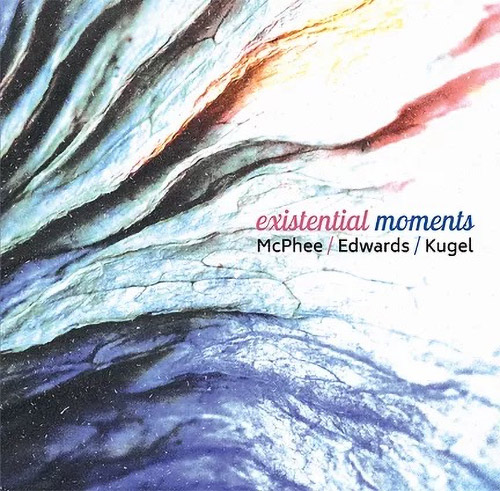


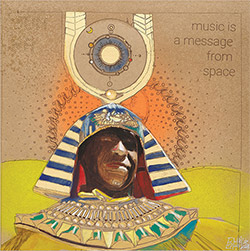
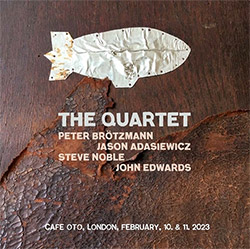
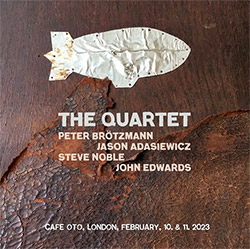

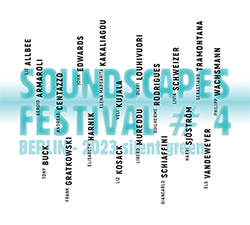
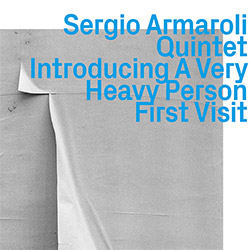

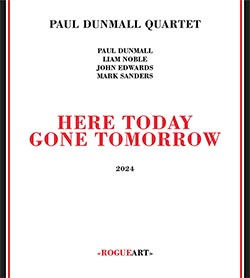


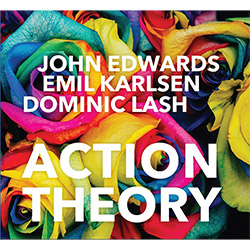

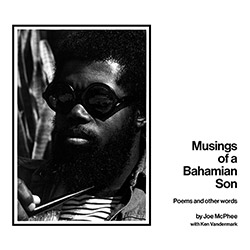

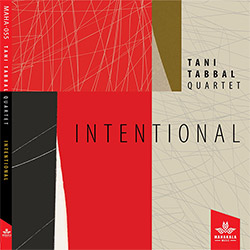
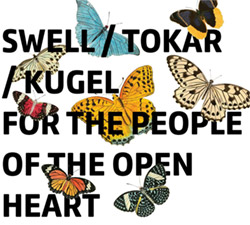
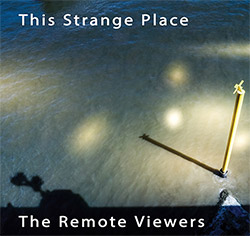
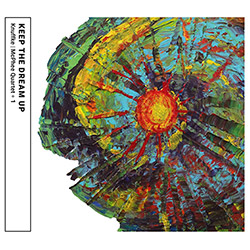
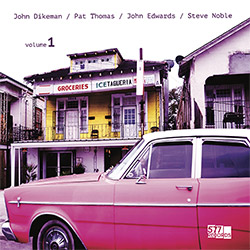
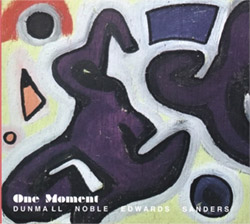
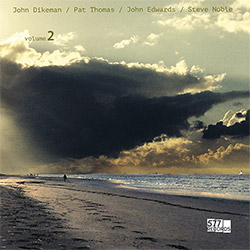

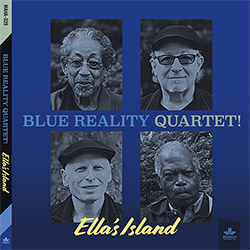





![BlueRing Improvisers: Materia [2 CDs]](https://www.teuthida.com/productImages/misc4/36513.jpg)








![Wheelhouse (Rempis / Adasiewicz / McBride): House And Home [VINYL]](https://www.teuthida.com/productImages/misc4/36462.jpg)
![+DOG+: The Light Of Our Lives [2 CDs]](https://www.teuthida.com/productImages/misc4/36009.jpg)


![Parker, Evan / Jean-Marc Foussat: Insolence [VINYL]](https://www.teuthida.com/productImages/misc4/36398.jpg)








![Deupree, Jerome / Sylvie Courvoisier / Lester St. Louis / Joe Morris: Canyon [2 CDs]](https://www.teuthida.com/productImages/misc4/36404.jpg)



![Eventless Plot | Haarvol: The Subliminal Paths [CASSETTE + DOWNLOAD]](https://www.teuthida.com/productImages/misc4/36232.jpg)










![Eventless Plot | Francesco Covarino: Methexis [CASSETTE + DOWNLOAD]](https://www.teuthida.com/productImages/misc4/36231.jpg)



![Das B (Mazen Kerbaj / Mike Majkowski / Magda Mayas / Tony Buck): Love [VINYL]](https://www.teuthida.com/productImages/misc4/36329.jpg)


![Eternities: Rides Again [CASSETTE]](https://www.teuthida.com/productImages/misc4/36247.jpg)
![Lopez, Francisco: Untitled (2021-2022) [2 CDs]](https://www.teuthida.com/productImages/misc4/36438.jpg)






![Money : Money 2 [2 CDs]](https://www.teuthida.com/productImages/misc4/35894.jpg)




![Klinga, Erik: Elusive Shimmer [VINYL]](https://www.teuthida.com/productImages/misc4/36258.jpg)
![CHANGES TO blind (Phil Zampino): Volume 9 - I Wave on a Fine Vile Mist [CD + DOWNLOAD]](https://www.teuthida.com/productImages/misc4/36061.jpg)

![Wallmart / Rubbish: Asset Protection [split CD]](https://www.teuthida.com/productImages/misc4/35900.jpg)


![+Dog+: The Family Music Book Vol. 5 [2 CDs]](https://www.teuthida.com/productImages/misc4/35897.jpg)
![Kuvveti, Deli : Kuslar Soyledi [CASSETTE w/ DOWNLOAD]](https://www.teuthida.com/productImages/misc4/36107.jpg)

![Brown, Dan / Dan Reynolds: Live At The Grange Hall [unauthorized][CASSETTE]](https://www.teuthida.com/productImages/misc4/36245.jpg)








![Palestine, Charlemagne / Seppe Gebruers: Beyondddddd The Notessssss [VINYL]](https://www.teuthida.com/productImages/misc4/36206.jpg)
![Palestine, Charlemagne / Seppe Gebruers: Beyondddddd The Notessssss [NEON GREEN VINYL]](https://www.teuthida.com/productImages/misc4/36207.jpg)

![Laubrock, Ingrid: Purposing The Air [2 CDs]](https://www.teuthida.com/productImages/misc4/35639.jpg)

![Yoko, Ono / The Great Learning Orchestra: Selected Recordings From Grapefruit [2 CDs]](https://www.teuthida.com/productImages/misc4/35841.jpg)









![Zorn, John / JACK Quartet: The Complete String Quartets [2 CDs]](https://www.teuthida.com/productImages/misc4/35609.jpg)

![Lonsdale, Eden: Dawnings [2 CDs]](https://www.teuthida.com/productImages/misc4/35480.jpg)



![Sorry For Laughing (G. Whitlow / M. Bates / Dave-Id / E. Ka-Spel): Rain Flowers [2 CDS]](https://www.teuthida.com/productImages/misc4/35985.jpg)

![Rolando, Tommaso / Andy Moor : Biscotti [CASSETTE w/ DOWNLOADS]](https://www.teuthida.com/productImages/misc4/36106.jpg)


![Electric Bird Noise / Derek Roddy: 8-10-22 [CD EP]](https://www.teuthida.com/productImages/misc4/35970.jpg)








![Elephant9 : Mythical River [VINYL]](https://www.teuthida.com/productImages/misc4/34624.jpg)



![Elephant9 with Terje Rypdal: Catching Fire [VINYL 2 LPs]](https://www.teuthida.com/productImages/misc4/35355.jpg)
![Deerlady (Obomsawin, Mali / Magdalena Abrego): Greatest Hits [VINYL]](https://www.teuthida.com/productImages/misc4/34876.jpg)







![Surplus 1980: Illusion of Consistency [CD]](https://www.teuthida.com/productImages/misc4/35069.jpg)
![Staiano, Moe: Away Towards the Light [VINYL + DOWNLOAD]](https://www.teuthida.com/productImages/misc4/35037.jpg)
![Coley, Byron: Dating Tips for Touring Bands [VINYL]](https://www.teuthida.com/productImages/misc4/17906.jpg)

![Lost Kisses: My Life is Sad & Funny [DVD]](https://www.teuthida.com/productImages/misc4/lostKissesDVD.jpg)